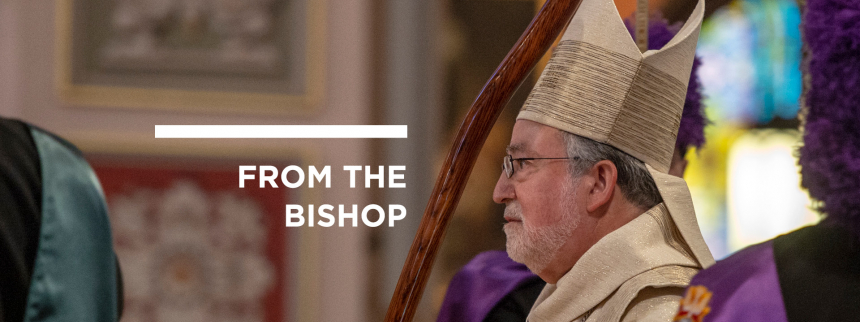
With good reason, many people look to St. Francis for inspiration when considering our share with creation in giving praise to God. His Canticle of the Sun is recognized by many people well beyond the Catholic community. St. Francis’s poem, believed to have been written in 1225, is presumed to be the first work of literature by a known author composed in the Italian language. It has been translated into many languages and inspired expressions in various art forms: hymns, songs, movies, plays, novels and operas, to name a few.
St. Francis inspired a relational understanding of brother sun, sister moon, brother wind, sister water, brother fire, sister mother earth, and even sister death. Together we serve one another in giving praise to God. His appreciation was in turn inspired by the ancient scriptural references about all creation’s duty to praise the creator. Reading the saint’s canticle, one hears echoes of a much earlier venerated antiphon of praise sung by Shadrach, Meshach and Abednego in the third chapter of the Book of Daniel.
The lengthy canticle of Daniel — 38 verses — is sung frequently in the liturgy of the Catholic Church. On Sundays, solemnities, and feasts, the canticle of Daniel is recited or chanted in the Liturgy of the Hours prayed by all clergy and religious. Lay men and women who have taken up the praiseworthy daily practice of the Liturgy of the Hours would also be very familiar with “Sun and moon, bless the Lord; praise and exalt him above all forever. Stars of heaven, bless the Lord; praise and exalt him above all forever.” (Dn 3:62-63)
Daniel's canticle is a litany worthy of more attention. It starts with heaven and the eternal celestial liturgy celebrated around God’s throne: “Blessed are you in the temple of your holy glory, praiseworthy and glorious above all forever.” (Dn 3:53) The canticle then descends to the angels, then to the sun, moon, and heavenly bodies. The litany continues to call out to all the elements of the earth — wind, snow, rain, and frost — to praise the Lord. All creatures of land, sea and sky are urged to exalt the Lord forever. Then humanity is brought into this cosmic chorus. Finally, Shadrach, Meshach and Abednego join the canticle’s praise of the Almighty God.
The context for this beautiful, ancient homage to God was not the temple or a high mountaintop with sweeping panoramic views of nature. Daniel’s canticle was sung from a blazing fiery furnace. Shadrach, Meshach, and Abednego were thrown into the furnace for refusing to worship the idols of the Babylonian king, Nebuchadnezzar. The blazing furnace matched the angry fury of the King who, before having the three men bound and thrown into the fire, scoffed at them for their religious beliefs: “Who is the God who can deliver you out of my hands?” (Dn 3:15)
Surrounded by flames the three men proclaimed their faith in God, calling on all creation to join them in their song. As they sang, an angel of the Lord joined their chorus, so even from the punishing inferno heaven and earth were part of one song of praise.
Daniel's canticle has much to teach us about our relationship to the created world around us and why we should care for God’s creation. We are all part of one hymn of praise. The concerns for environmental degradation and sustainable development deserve our attention, but we should not lose sight of the broader horizon given to us by the poor saint from Assisi and the prophet Daniel. The prophet’s canticle particularly reminds us that we are part of the heavenly liturgy. The praise sung from all eternity echoes in the winds that blow, the chill that shivers, the snow that crowns the mountain slopes, the rivers that wind through the valleys. Orchards of trees rustle and fields of crops turn in rhythm to a heavenly tempo.
The care for creation begins by uniting ourselves to the eternal chorus of praise. While beautiful and integral to our own human existence, the created world also possesses an essential transcendent nature. St. Francis of Assisi saw this. Shadrach, Meshach, and Abednego were prepared to die for this. All our sacramental rituals celebrate this. Water, oil, bread, wine, the marital union of man and woman, and even sickness — all these natural signs point to a heavenly reality to which we join our voices to sing, “Bless the God of gods, all you who fear the Lord; praise and give thanks, for his mercy endures forever.” (Dn 3:90) May the praise and reverence we offer to God through the course of time lead us all to enjoy the divine mercy that endures forever.

